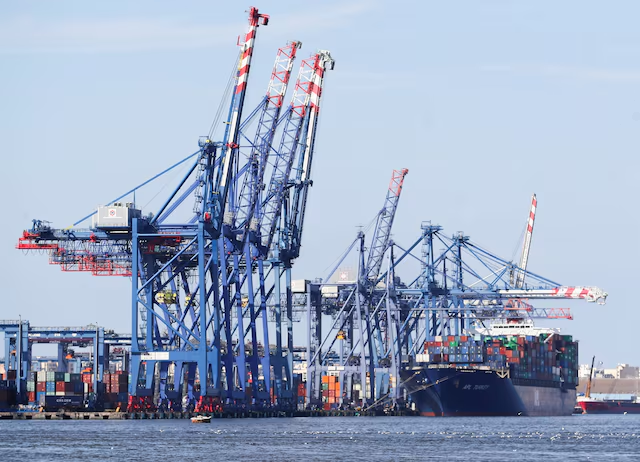Egypt, one of the world’s largest wheat importers, has transferred the responsibility for importing strategic food commodities from its decades-old General Authority for Supply Commodities (GASC) to a military-affiliated agency. This move has raised concerns among global traders, disrupted established market practices, and injected uncertainty into international wheat markets.
A New Player in Global Commodity Markets
The newly empowered agency, the Mostakbal Misr Agency for Sustainable Development, was established by presidential decree in 2022 as part of the Egyptian Armed Forces. Originally tasked with land reclamation projects, its remit has expanded to include broader economic activities, including importing vital food supplies.
A letter from Egypt’s Ministry of Supply, addressed to Russia’s Minister of Agriculture Oksana Lut and seen by Reuters, announced that Mostakbal Misr will now handle all international purchases of food commodities, including wheat, replacing GASC. The letter emphasized that the agency would engage in both international tenders and direct purchase agreements, aiming to streamline procurement processes.
“The Supply Ministry guarantees that the agency has the financial capacity to honour all commitments arising from tenders and direct purchases,” the letter stated.
Concerns Over Market Disruption
For decades, GASC served as a trusted intermediary in the global wheat trade, ensuring a stable supply of subsidized bread for 70 million Egyptians. Its established practices and transparent tendering system fostered confidence among international traders handling millions of dollars in transactions.
The sudden transition to Mostakbal Misr has unsettled traders, many of whom remain unfamiliar with the agency. A German wheat trader expressed skepticism, saying, “GASC terms for deals in international tenders have been built up over many years. They are trusted, and only when there is trust can big purchases be made with many millions of dollars involved. The new organization will face short-term difficulties.”
In November, the agency attempted to procure wheat and vegetable oil via direct purchases. However, ambiguities in procedures caused confusion, leading to delays and calls for greater clarity.
Military’s Expanding Role in Egypt’s Economy
The military’s increasing involvement in civilian sectors has been a hallmark of President Abdel Fattah al-Sisi’s administration. Military-run firms have grown in prominence, often taking over roles traditionally held by civilian institutions. While the government defends these actions as necessary to fill market gaps, some business leaders and foreign investors view the trend with unease.
Founded to support sustainable development, Mostakbal Misr now oversees projects previously managed by other military and civilian organizations. Its role in strategic food imports marks its entry into a critical area of Egypt’s economy.
Local and International Implications
Egypt’s reliance on imported wheat remains substantial, despite efforts to boost domestic production. The local wheat harvest for 2024 totaled 3.42 million tons, only a slight increase from the 3.41 million tons in 2023 and falling short of the 3.7 million tons supplied in 2022. The agency had pledged to reduce Egypt’s wheat import bill by increasing domestic supply, but the modest harvest figures suggest this goal remains elusive.
Globally, traders are wary of the agency’s limited experience. Procedural clarity and trust-building will be crucial for the smooth continuation of Egypt’s wheat imports, which play a significant role in the international grain market.
A Rocky Transition
While the Supply Ministry assured traders that the new agency has the financial capacity to manage purchases, the Russian Grain Exporters and Producers Union expressed uncertainty, stating, “We cannot confirm or deny the existence of this letter. We have not yet received any information through official channels traditionally used for such exchanges.”
Traders fear that Mostakbal Misr’s unfamiliarity with global procurement norms could disrupt Egypt’s vital food supply chain in the short term. Nonetheless, over the long term, the agency may adapt to its role and establish credibility in international markets.
The Road Ahead
Egypt’s decision to entrust its strategic food imports to a military-affiliated agency reflects a broader shift in its economic and administrative policies. As Mostakbal Misr navigates its new responsibilities, its success—or failure—will have profound implications for the country’s food security and its relationships with global commodity markets.



